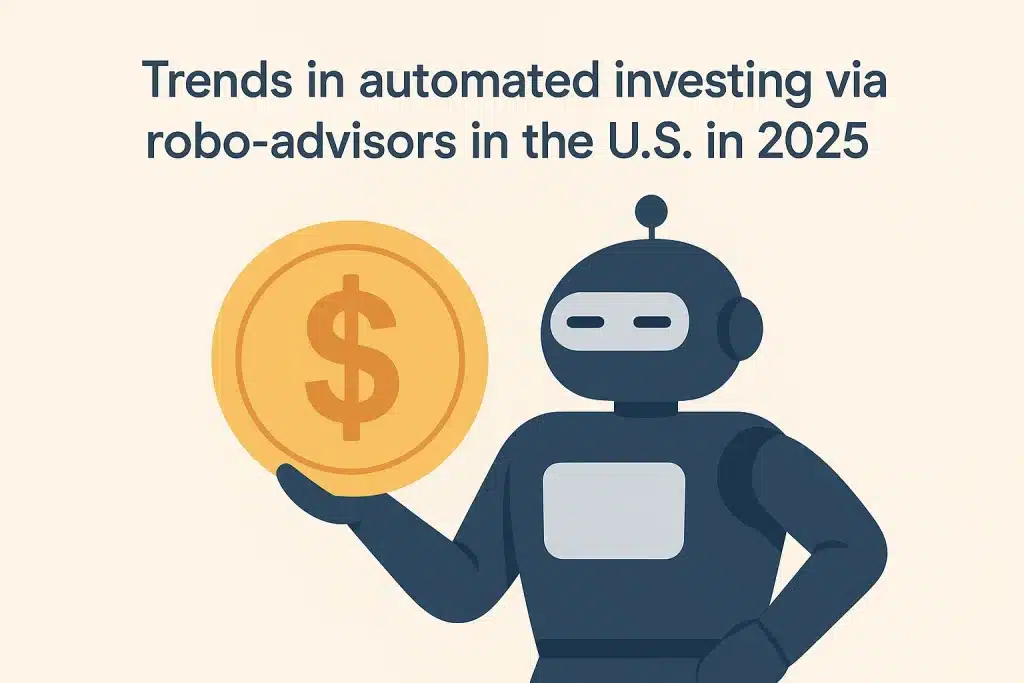The world of finance is experiencing a revolution through the rise of automated investment platforms, particularly in the US market. These digital advisors, often referred to as robo-advisors, are playing a pivotal role in shaping the future of investments.
As we look towards 2025, understanding these trends becomes essential for both new and seasoned investors. With investments at the core of economic growth, exploring how technology is optimizing this space reveals promising pathways and potential opportunities for wealth accumulation.
The evolution of digital investment platforms

The fast-paced evolution of digital platforms in the investment space highlights significant changes over recent years. From simplification of administrative processes to enhanced accessibility for retail investors, the shift has been profound. Automated advisors are no longer just a novelty; they are becoming mainstream.
Robo-advisors offer clients a hands-off approach to managing their portfolios while ensuring asset diversification and optimization. Digital platforms analyze vast amounts of financial data, enabling them to provide recommendations that align with market trends and individual goals.
Personalization through AI and machine learning
As technology grows more sophisticated, personalization becomes a vital aspect of robo-advisory services. AI and machine learning algorithms enable platforms to tailor financial strategies fitting individual risk profiles and preferences. This specificity provides users with investment recommendations that reflect real-time analysis and evolving market conditions.
By leveraging big data and advanced analytics, robo-advisors can predict future market behavior better and adjust portfolios accordingly. Investors benefit from personalized guidance without the high fees traditionally associated with human advisors.
Impacts on financial advisory services
As automated solutions gain traction, the financial advisory sector is experiencing transformations that challenge traditional models. The advent of robo-advisors allows for scalable services that offer comprehensive analysis without the need for extensive human intervention. This shift is reducing costs and expanding access to financial advice.
In response, conventional advisors are adjusting their approaches, incorporating digital tools to enhance their offerings. They focus on providing more personalized and value-added services, like holistic financial planning and personal coaching.
Navigating regulatory landscapes and ethical considerations
With the proliferation of robo-advisors, regulatory bodies are implementing guidelines to ensure transparency and consumer protection. Navigating these landscapes requires balancing innovation with compliance. Providers must adhere to fiduciary standards, ensuring that their algorithms act in the best interests of their clients.
Ethical considerations, such as data security and privacy, are paramount. Consumers demand robust protections for their financial data, prompting platforms to prioritize cybersecurity and ethical use of technology. As these automated services grow, continuous adaptation to regulatory environments remains crucial, building trust and ensuring sustainable growth.
Embracing the future of investing
The future of investing is undoubtedly intertwined with advancements in technology. Robo-advisors are setting a new standard in efficiency and accessibility, making financial growth an attainable goal for a broader audience. Investors, financial institutions, and regulatory bodies must embrace these changes and prepare for a dynamically evolving landscape.
As we approach 2025, the challenge lies in harnessing the full potential of automated services while retaining the human touch that personalizes financial advice. By integrating cutting-edge technology with established financial practices, we can ensure that the journey towards financial prosperity remains guided by innovation and informed decision-making.

